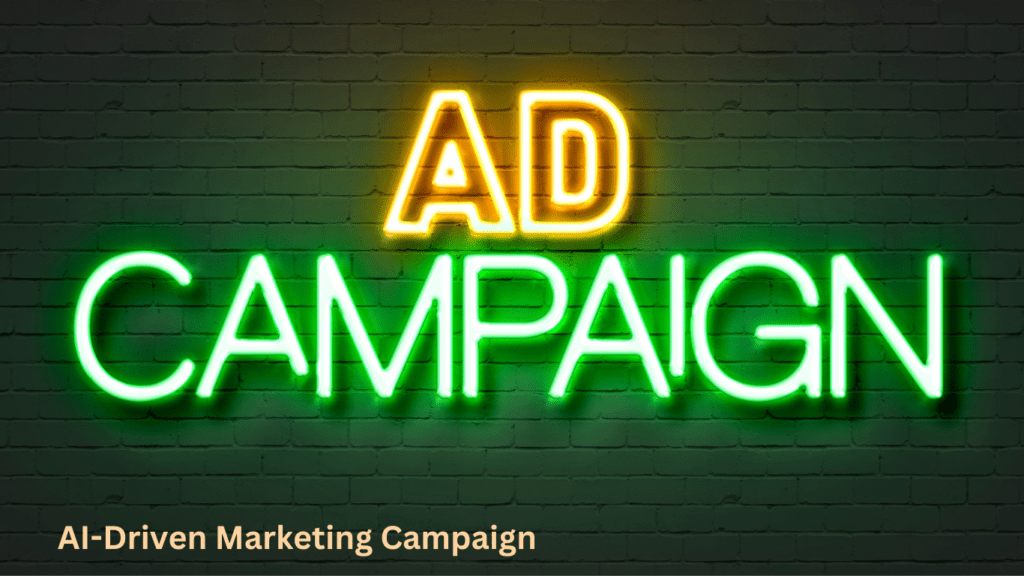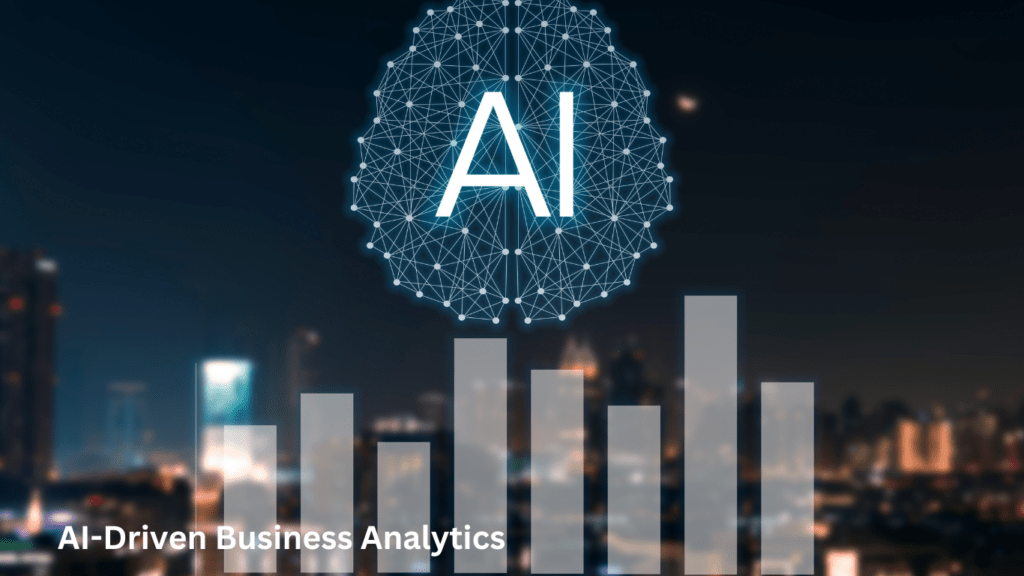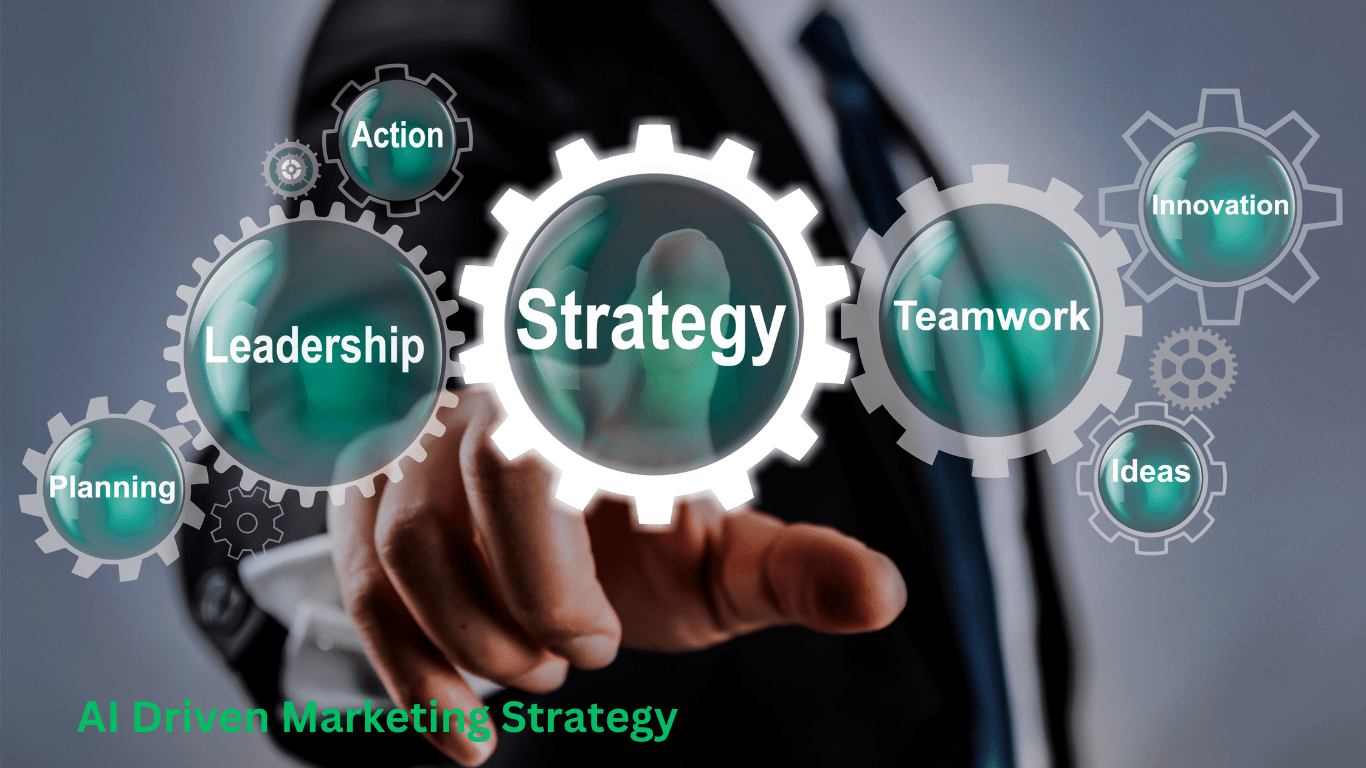Introduction
In today’s hyper-competitive retail landscape, staying ahead requires more than just traditional marketing strategies. Artificial Intelligence (AI) has emerged as a game-changer, revolutionizing how businesses approach marketing and advertising. By harnessing the power of AI, retailers can unlock unprecedented opportunities to engage customers, personalize experiences, and drive sales. In this blog post, we’ll explore the transformative impact of AI-driven marketing strategies and how they are reshaping the retail industry.AI enables retailers to analyze vast amounts of data in real-time, allowing for dynamic pricing strategies, targeted product recommendations, and predictive analytics to anticipate customer needs. This level of personalization not only enhances the shopping experience but also fosters customer loyalty and increases overall revenue. As AI continues to evolve, its integration into retail operations will become increasingly indispensable, setting the stage for a new era of innovation and growth in the industry.
AI-Driven Marketing Campaigns
In the realm of marketing, AI is not just a buzzword; it’s a powerful tool that can significantly enhance campaign effectiveness. At its core, AI enables marketers to analyze vast amounts of data with unprecedented speed and accuracy, empowering them to make data-driven decisions and craft highly targeted campaigns.

One of the key aspects of AI-driven marketing campaigns is the ability to understand consumer behavior on a granular level. By leveraging advanced algorithms, AI can sift through mountains of customer data to identify patterns, preferences, and trends. This deep understanding allows marketers to segment their audience more effectively and tailor their messaging to resonate with specific demographics.
Moreover, AI can automate various aspects of the marketing process, saving time and resources while increasing efficiency. For instance, AI-powered tools can automate email marketing campaigns, personalize content based on individual user preferences, and even optimize ad placements in real-time for maximum impact.
Perhaps the most significant advantage of AI-driven marketing campaigns is their ability to deliver hyper-personalized experiences to consumers. Through techniques like machine learning and natural language processing, AI can analyze customer interactions in real-time and adapt marketing messages accordingly. This level of personalization not only enhances customer engagement but also fosters brand loyalty and drives repeat business.
Several companies have already embraced AI-driven marketing campaigns with remarkable success. For example, Amazon utilizes AI algorithms to recommend products to customers based on their browsing and purchase history. These personalized recommendations account for a significant portion of Amazon’s sales and have helped cement the company’s position as a leader in e-commerce.
Similarly, Netflix leverages AI to analyze viewer preferences and suggest personalized content recommendations. By serving up tailored recommendations, Netflix keeps users engaged and encourages them to continue their subscription, driving revenue growth for the company.
In essence, AI-driven marketing campaigns represent a paradigm shift in how retailers approach customer engagement. By harnessing the power of AI, businesses can deliver more relevant, timely, and compelling marketing messages that resonate with their target audience. As AI technology continues to evolve, the possibilities for innovative marketing strategies are virtually limitless.
Personalized Advertising with AI
In the digital age, consumers are inundated with marketing messages from all angles. To cut through the noise and capture their attention, advertisers must deliver personalized experiences that resonate with individual preferences and interests. This is where AI-powered personalized advertising comes into play, offering a powerful solution to the challenge of engaging today’s consumers.
At its core, personalized advertising leverages AI algorithms to analyze vast amounts of customer data and deliver targeted messages tailored to each individual’s unique profile. These messages can take various forms, including personalized emails, targeted social media ads, and dynamic website content.
One of the key benefits of personalized advertising is its ability to enhance the relevance and effectiveness of marketing messages. By analyzing customer data such as browsing history, purchase behavior, and demographic information, AI algorithms can identify patterns and preferences that enable advertisers to deliver highly relevant and timely advertisements.
Moreover, personalized advertising allows advertisers to create more engaging and memorable experiences for consumers. By serving up content that is tailored to their interests and preferences, advertisers can capture the attention of consumers and drive higher levels of engagement.
Another advantage of personalized advertising is its potential to drive higher conversion rates and ROI. Studies have shown that personalized ads are more effective at capturing consumer attention and driving action compared to generic, one-size-fits-all advertisements. By delivering personalized messages that resonate with individual interests and preferences, advertisers can increase the likelihood of conversion and maximize the return on their advertising investment.
Furthermore, personalized advertising can foster stronger relationships between brands and consumers. By demonstrating an understanding of their needs and preferences, brands can build trust and loyalty with their audience, leading to long-term customer relationships and repeat business.
Several companies have successfully implemented personalized advertising strategies with impressive results. For example, clothing retailer Stitch Fix utilizes AI algorithms to analyze customer data and recommend personalized clothing selections to each individual subscriber. By delivering personalized styling recommendations, Stitch Fix has been able to increase customer satisfaction and retention rates.
Similarly, Spotify leverages AI to analyze user listening habits and serve up personalized music recommendations and targeted advertisements. By delivering personalized content and advertisements, Spotify enhances the user experience and drives higher levels of engagement and ad revenue.
In summary, personalized advertising with AI represents a powerful tool for advertisers looking to cut through the noise and engage today’s consumers. By leveraging AI algorithms to analyze customer data and deliver targeted messages, advertisers can create more relevant, engaging, and effective advertising experiences that drive results.
Measuring Success with AI Analytics
In the ever-evolving landscape of marketing, data is king. Understanding how campaigns perform and making data-driven decisions are essential for maximizing return on investment (ROI) and achieving business objectives. This is where AI analytics comes into play, offering powerful tools and techniques for measuring the success of marketing efforts with unprecedented accuracy and granularity.

One of the key advantages of AI analytics is its ability to process and analyze vast amounts of data in real-time. Traditional analytics tools often struggle to keep pace with the sheer volume and complexity of data generated by modern marketing campaigns. AI, on the other hand, excels at handling big data, enabling marketers to extract valuable insights and make informed decisions quickly.
Moreover, AI analytics goes beyond simple descriptive analytics, which merely describe what happened in the past. With advanced machine learning algorithms, AI can perform predictive analytics, forecasting future trends and outcomes based on historical data. This capability allows marketers to anticipate customer behavior, identify emerging opportunities, and proactively adjust their strategies to stay ahead of the curve.
Another advantage of AI analytics is its ability to uncover hidden patterns and correlations within the data. By applying sophisticated algorithms, AI can identify subtle relationships between different variables that human analysts may overlook. These insights can help marketers uncover new opportunities for optimization and refinement, ultimately leading to more effective marketing campaigns.
Furthermore, AI analytics enables marketers to measure the impact of their campaigns with greater precision and accuracy. By tracking key performance indicators (KPIs) in real-time and analyzing data at a granular level, marketers can understand which strategies are driving results and which are falling short. This level of insight empowers marketers to make data-driven decisions and allocate resources more effectively, ultimately maximizing ROI.
Several companies have embraced AI analytics to great success. For example, retail giant Walmart utilizes AI-powered analytics tools to analyze customer purchase data and optimize product placement in stores. By leveraging AI to identify trends and patterns in customer behavior, Walmart can ensure that the right products are in the right place at the right time, driving sales and enhancing the customer experience.
Similarly, digital marketing platforms like Google and Facebook use AI algorithms to analyze user engagement data and optimize ad targeting and delivery. By harnessing the power of AI analytics, these platforms can deliver highly relevant and personalized advertisements to users, increasing the likelihood of conversion and driving revenue for advertisers.
In summary, AI analytics represents a game-changer for marketers looking to measure and optimize the success of their campaigns. By leveraging advanced machine learning algorithms to analyze vast amounts of data in real-time, marketers can gain valuable insights, anticipate trends, and make data-driven decisions that drive results.
Conclusion
Artificial Intelligence (AI) has transformed the landscape of marketing and advertising, offering powerful tools and techniques for retailers to engage with consumers in more personalized and effective ways. From AI-driven marketing campaigns to personalized advertising and AI analytics, retailers have a wealth of opportunities to leverage AI to drive success in their marketing efforts.
By understanding consumer behavior on a granular level and delivering hyper-personalized experiences, retailers can capture the attention of consumers and foster stronger relationships with their audience. Moreover, AI analytics enables marketers to measure the impact of their campaigns with unprecedented accuracy, empowering them to make data-driven decisions and optimize their strategies for maximum ROI.
As technology continues to evolve, the possibilities for AI-driven marketing strategies are virtually limitless. Retailers that embrace AI and harness its power to enhance their marketing efforts will undoubtedly gain a competitive edge in today’s fast-paced digital landscape.
In conclusion, AI-driven marketing represents a paradigm shift in how retailers approach customer engagement and advertising. By leveraging the power of AI, retailers can unlock new opportunities for growth, drive customer loyalty, and achieve unprecedented success in their marketing endeavors.
More Reading:
- Artificial Intelligence (AI)
- Retail
- Customer Experience
- Personalization
- Inventory Management
- Supply Chain Management
- Marketing
- Advertising
- Chatbots
- Virtual Assistants
- Machine Learning
- Natural Language Processing (NLP)
- Computer Vision
- Predictive Analytics
- Demand Forecasting
- Order Fulfillment
- Logistics
- Retail Technology
- E-commerce
- Omnichannel Retailing

- Unlocking the Future of Shopping: Exploring Consumer Intentions at AI-Powered Automated Retail Stores (AIPARS)
- Bridging the Gap: Online Stores vs. Physical Stores – The Ultimate Shopping Experience
- Revolutionizing Retail: Embracing Omnichannel Strategies for the Future
- Clicks vs. Bricks: Navigating the Pros and Cons of Online Shopping
